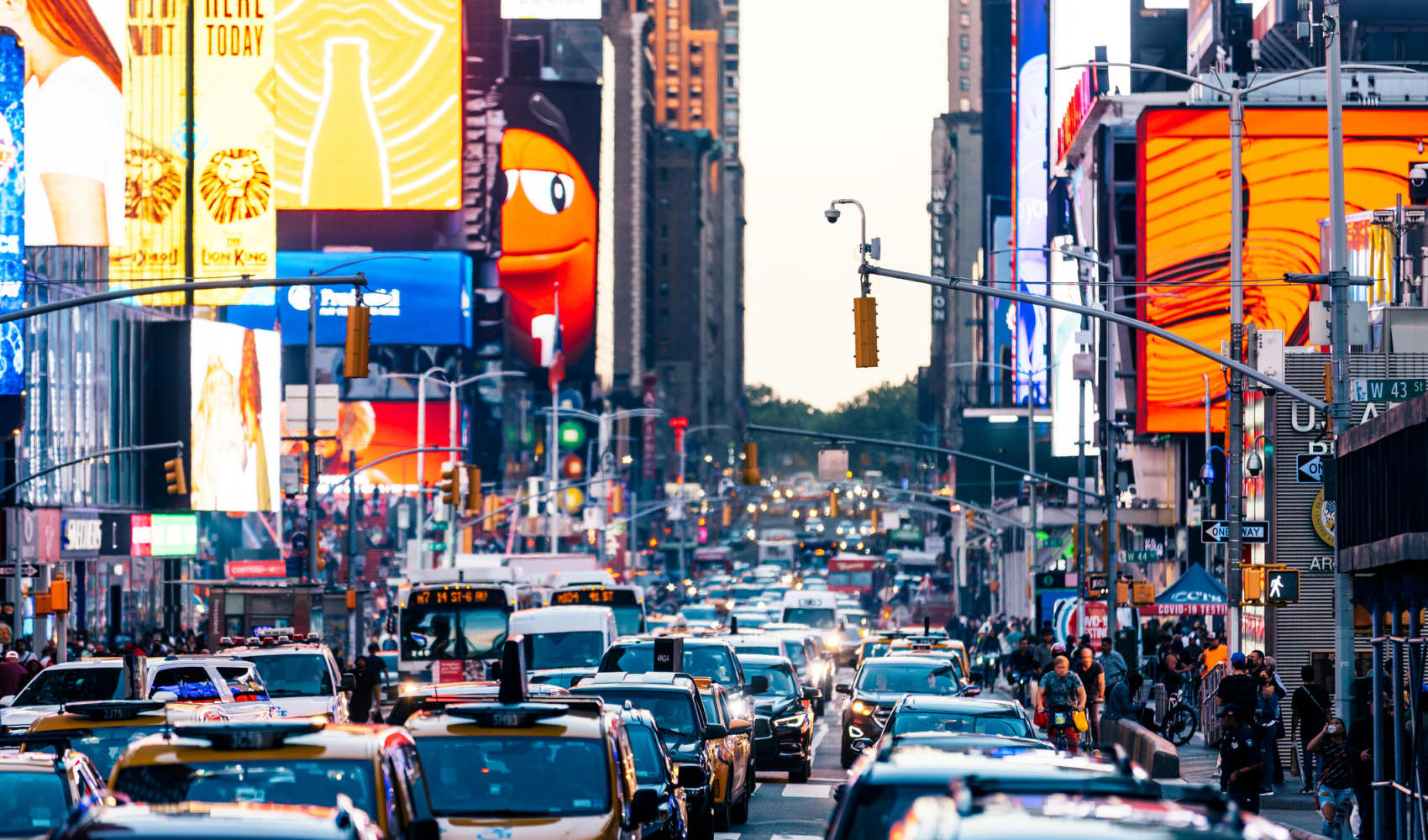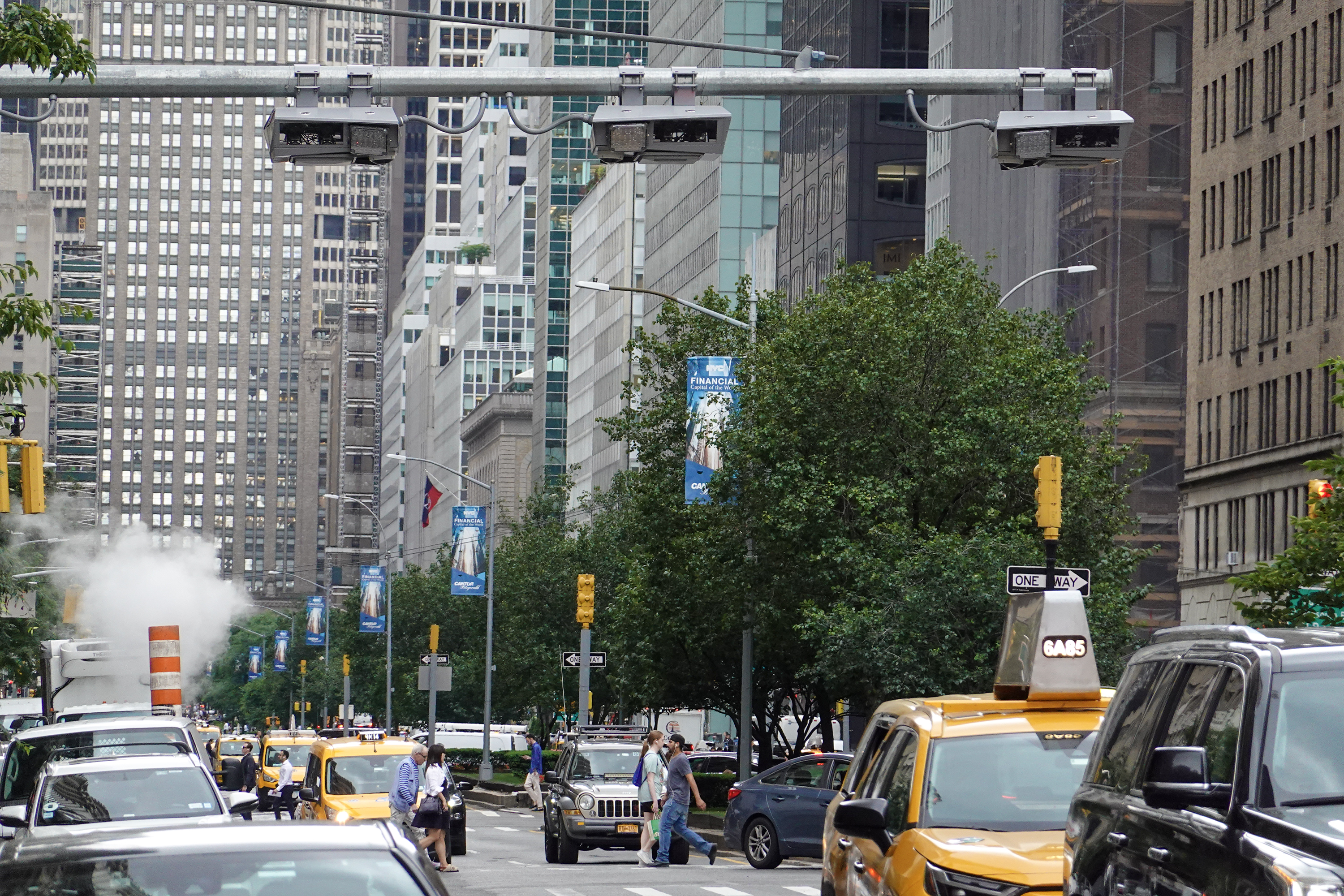Congestion pricing may be on pause for now, but some lawmakers are pushing New York Gov. Kathy Hochul to scrap it entirely after she revealed in an interview that there is a new plan for the controversial program that could take effect by the end of 2024.
Hochul said in an interview with Politico that she is looking to get a new plan on the books before the end of the year in order to get state lawmakers on board and get congestion pricing into effect. In limbo since June, the governor could greenlight the program after Election Day.
But that news triggered an emotional response from Long Island lawmakers, who said it was only a matter of time before the issue returned — and believe the timing of its return may be politically motivated.
"The governor has shown us her hand. This is nothing but an election gimmick to delay it. The residents out here are so opposed to congestion pricing, they've had enough," said Hempstead Town Supervisor Don Clavin.
The congestion pricing plan would have charged drivers $15 when entering Manhattan below 61st Street.
Get Tri-state area news delivered to your inbox.> Sign up for NBC New York's News Headlines newsletter.
"We don't want a pause, we don't want a timeout, we don't want a maybe. We want a never. Congestion pricing should never see the light of day," said Rep. Anthony D'Esposito.
The congressman maintains there is a way MTA can figure out the congestion problem without having drivers pay out of their pocket: by better managing their budget.
"The MTA has utilized hardworking New Yorkers as their ATM for far too long. The MTA spends over $3 billion per year just to service its debt," D'Esposito said.
The transit authority told NBC New York the overall budget is down in real dollars compared to prior years.
"While we appreciate random outbursts from political machine puppets, the MTA is running 40% more service on Long Island with a budget that’s three percent lower than before COVID,” said MTA Chief of Policy and External Relations Jon McCarthy.
The MTA has also said the pause on congestion pricing has postponed their ability to buy new trains and busses. They noted that they are scrambling to make up for the $15 billion in revenue the old plan was expected to generate.



